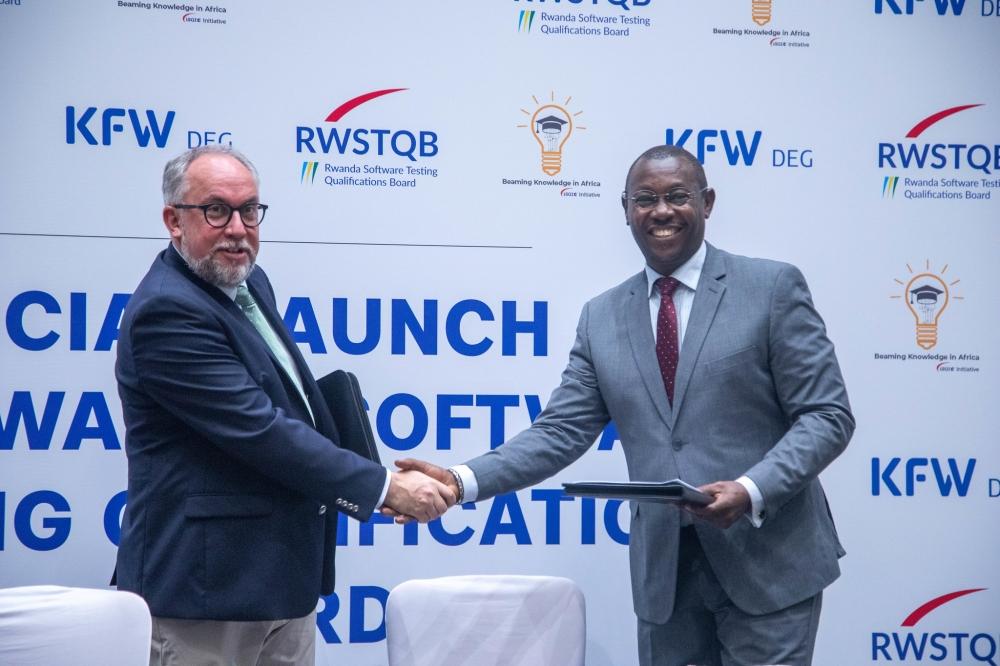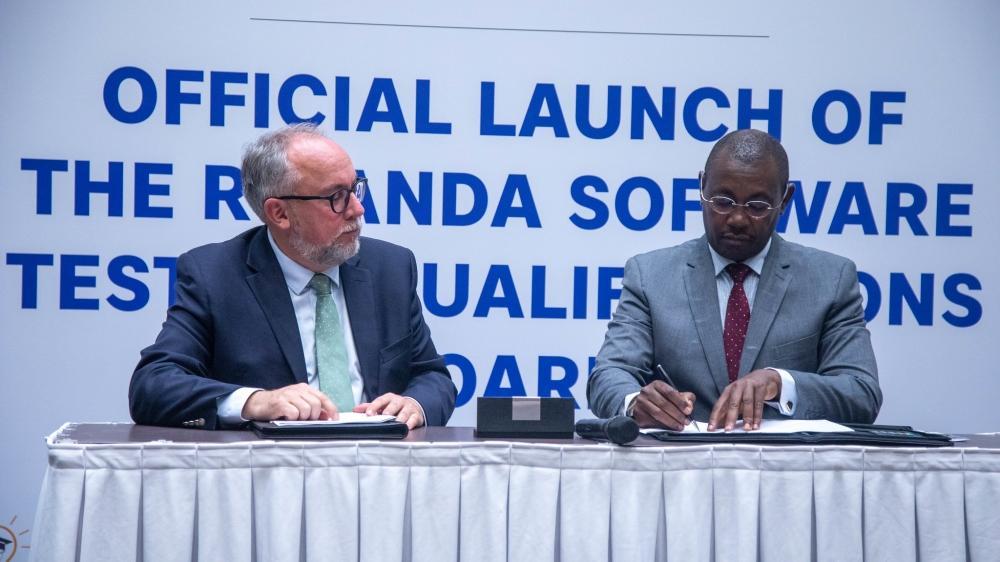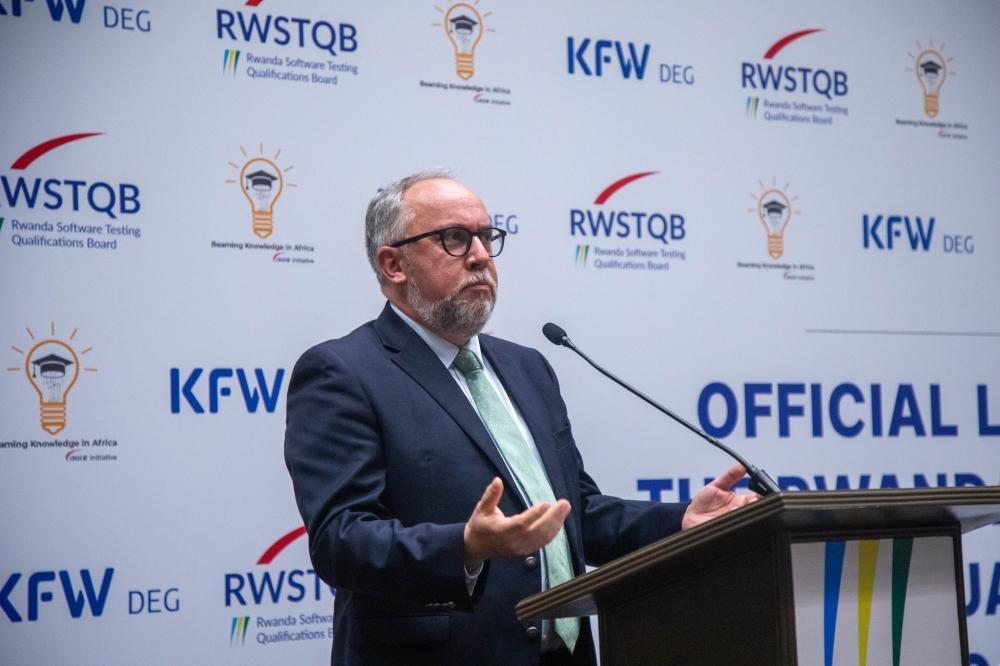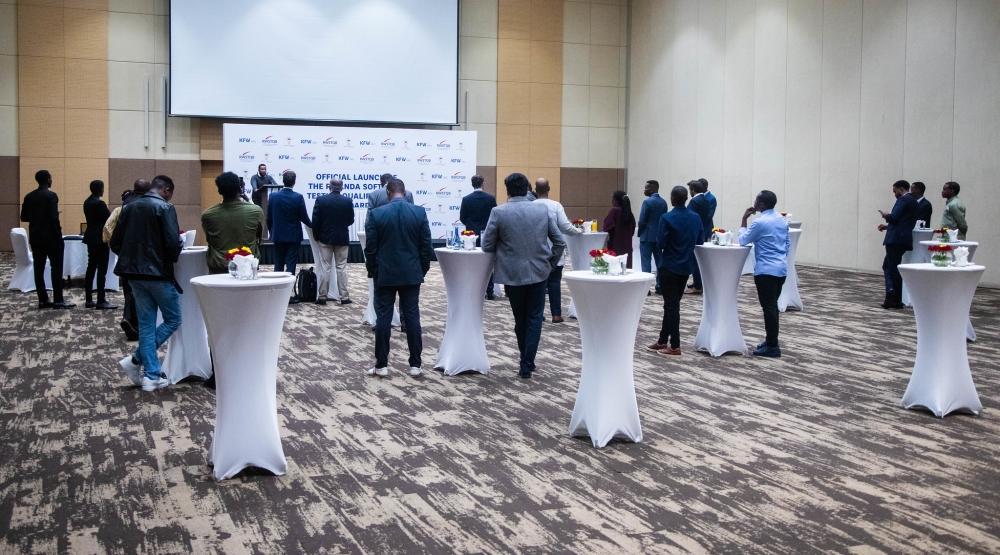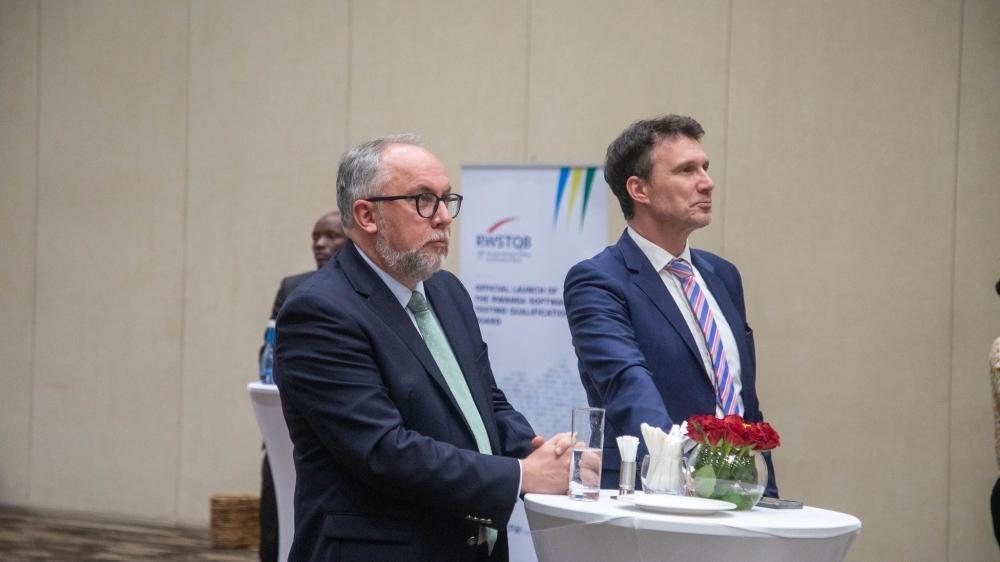Africa-Press – Rwanda. The International Software Quality Institute, iSQI Group, and other stakeholders in Rwanda have entered a partnership to provide a framework for the delivery of International Software Testing Qualifications Board (ISTQB) certifications.
The partners include Rwanda ICT Chamber, Digital Business Institute (DBI), Kepler College, AIMS, and Awesomity Lab.
With the support of iSQI, together, they have set up the Rwanda Software Testing Qualifications Board, RWSTQB.
“There is so much potential in Rwanda, as there is a steady increase in software development. It is therefore critical to oversee and ensure international standard quality assurance of software designed and developed in Rwanda,” observed iSQI Group CEO, Stephan Goericke.
The board will be a local affiliate of ISTQB and will coordinate several activities along with training delivery through accredited training institutions, exams, and certifications as well as marketing and on-boarding trainees in streamlined cohorts.
ISTQB is a non-profit organisation made of member boards, exam, and training providers working together to deliver the ISTQB Certified Tester scheme.
“ISTQB continues to improve the globally acknowledged certified tester scheme, which develops, extends, and validates testing skills around the globe. It pleases us that one more country at the heart of Africa, Rwanda, opens itself to this opportunity,” said Representative of ISTQB, Werner Henschelchen.
The new board is set to be assimilated into the ISTQB, allowing it to directly deliver training programmes through ISTQB-local accredited training providers. DBI and Kepler will offer the training programs, in addition to AIMS, which has been the only accredited provider for the past two years.
In his speech, the president of the new RWSTQB board, Robert Ford, emphasised the importance of tested software to the end users.
He said, “If the software is released and used without proper quality assurance to determine authenticity and guarantee its benefit to the user, society as a whole stands at the edge of potentially disastrous outcomes.
“We have heard of software glitches that have led to two fatal plane crashes of the Boeing 737 Max in which human life has been lost. We have heard banking systems fail due to software glitches as well. There are many examples.”
In order to avoid potential and eminent fatalities and uncertainties, software quality control is now and will remain the only solution to a safe and sustainable digital ecosystem to which we all inevitably belong, he noted.
The inked MoU between iSQI and RWSTQB is also part of a collaborative effort to create opportunities for more Rwandans to get the right professional certifications in order to compete globally.
All stakeholders agree that collaboration with internationally recognised institutions, such as iSQI, will go a long way towards raising the next generation of Rwandan professionals, and will help to establish accredited software testing training providers in Rwanda, propelling them forward to become regional players in the IT industry.
Speaking about the benefits of obtaining the certification, Marie Mutuyimana, a graduate of the first batch to be trained and certified, stated that testing software allows one to fully understand their product/app and its adaptability, gives them confidence in their product/app, and avoids risks and gains customer confidence.
“Testing helps you identify application vulnerabilities that could be exploited by hackers and correct them before you release your product or app. This knowledge is extremely useful to me as an IT enthusiast and someone who works in this space,” she said.
Stephen Goericke, CEO of iSQI GmbH (left) and President of the RWSTQB, Robert Ford (right) sign the agreement in Kigali on March 22.
Stephen Goericke, CEO of iSQI GmbH addresses participants during the signing ceremony on March 22.
The event took place at Kigali Convention Centre

For More News And Analysis About Rwanda Follow Africa-Press

